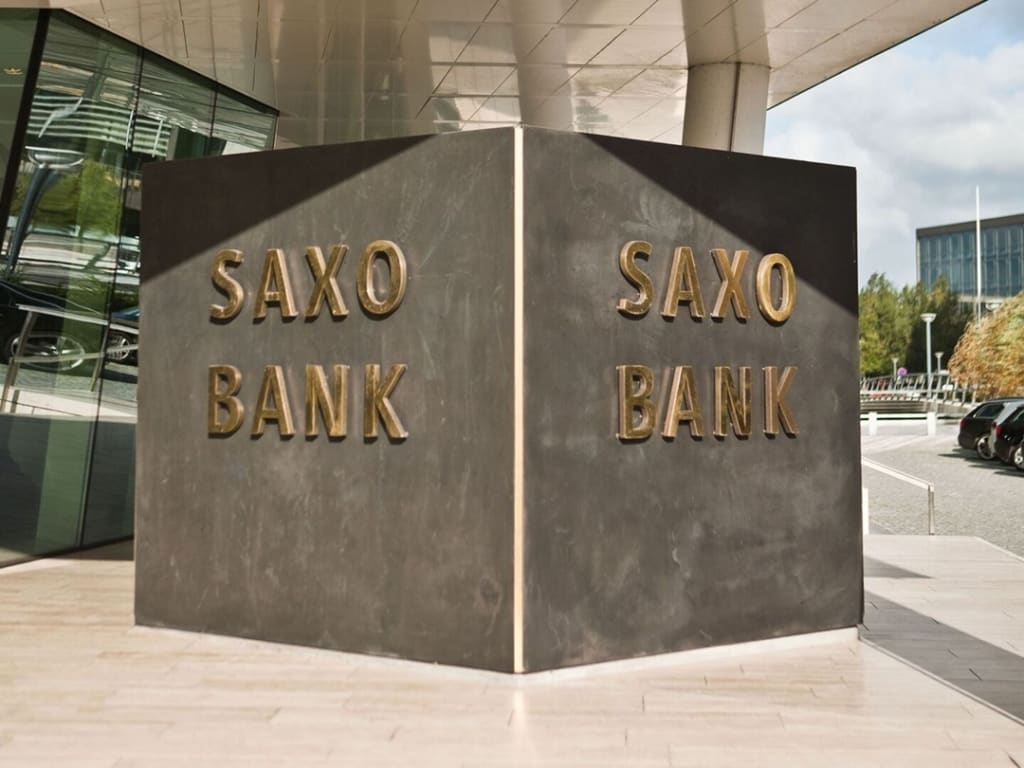New Year's predictions
Analysts at Danish Saxo Bank have published traditional "shocking predictions" for 2024

In an elaborate foresight exercise for the year 2024, Saxo Bank unfolds a narrative that envisions a plethora of potential global transformations. This intricate forecast contemplates the ramifications of oil prices surging to an unprecedented $150 per barrel, a scenario that could catalyze a substantial reconfiguration of Saudi Arabia's economic landscape. The kingdom, leveraging its heightened oil revenues, might pivot away from its traditional reliance on oil revenues, fostering a burgeoning landscape in tourism and entertainment. Intriguingly, the prospect extends further into the realm of sports as Saxo Bank experts postulate Saudi Arabia's acquisition of the prestigious UEFA Champions League. Such a move could herald the transformation of this elite football tournament into a global competition, with Riyadh poised as a pivotal hub for the unfolding drama.
Meanwhile, a nuanced prediction emerges in the realm of global health, where GLP-1 anti-obesity drugs, touted as a panacea for the burgeoning obesity epidemic, take center stage. However, the forecast unfolds an unexpected paradox, proposing that the simplicity of ingesting these pills might inadvertently contribute to a health crisis. The scenario unfolds as individuals, relying on pharmaceutical solutions, may slacken their commitment to regular exercise and succumb to unhealthy dietary habits. The consequence of this unforeseen outcome is a projected rise in global obesity rates, which, in turn, is anticipated to give rise to a myriad of health issues, subsequently leading to a decrease in overall global productivity.
A seismic shift in the economic landscape of the United States is envisaged by Saxo Bank as it predicts a potential end to capitalism in the nation. The premise revolves around the government's imperative to shore up the economy and prevent social unrest in the lead-up to the 2024 elections. Faced with inflationary pressures and capital repatriation by foreign investors, demand for U.S. Treasury bonds is expected to remain lackluster, leading to a sharp surge in bond yields. To counterbalance this, the U.S. government is projected to exempt income from government bonds from taxes, an unprecedented move that could mark a profound departure from conventional economic structures.
In a parallel narrative, Saxo Bank forecasts the onset of a national security crisis triggered by generative AI and the proliferation of deepfakes. Governments worldwide, responding to the perceived threat, are anticipated to impose new and stringent restrictions on AI technologies, dampening the once-burgeoning enthusiasm surrounding these innovations. Public distrust in AI-generated content is predicted to reach new heights, prompting governments to enact laws that restrict the distribution of news to a select group of authorized organizations. This dystopian vision foresees a society grappling with profound skepticism towards online information, with only government-approved entities granted the authority to disseminate news.
The economic recalibration continues as Saxo Bank envisions the formation of the "Club of Rome" by countries grappling with budget deficits. The United States, mired in an uncontrollable debt situation, is envisioned as the instigator of this exclusive economic alliance. Comprising six additional nations with budget deficits – Great Britain, India, Brazil, Canada, and France – the club is envisioned to collaborate on establishing new trade conditions aimed at mitigating deficit-related challenges. However, the potentially painful adjustments required for such a global economic reset could pose significant challenges, particularly for countries with substantial budget surpluses.
A political upheaval of unprecedented proportions takes center stage in the United States as Saxo Bank forecasts the unlikely victory of an outsider, Robert Kennedy Jr., in the 2024 presidential election. Against the backdrop of a looming recession and dwindling enthusiasm for established political figures, Kennedy's populist stance against conflict, corporate elites, and inequality strikes a chord with a disillusioned electorate. This unexpected political trajectory is anticipated to set the stage for a radical departure from plutocracy, with potential ramifications for major industries, including defense, pharmaceuticals, and technology.
Shifting focus to the Land of the Rising Sun, Saxo Bank unfolds a narrative of economic resurgence in Japan, predicting a robust 7% GDP growth. Prime Minister Kishida's administration is anticipated to implement populist measures, stimulating domestic demand and fostering a positive economic cycle. A technology dissemination program is envisioned to attract investments, leading to increased productivity despite challenges posed by a dwindling labor supply due to an aging population. However, a potential policy shift by the Bank of Japan to end its policy of controlling the yield curve in 2024 could send shockwaves through global bond markets.
The European Union takes center stage in the final act of Saxo Bank's predictions, as it contemplates the introduction of a 2% wealth tax on billionaires to address pressing concerns such as climate change, health, and education. The European Commission, according to Saxo Bank analysts, could implement this tax to generate an additional 42 billion euros in revenue. However, this seemingly prudent fiscal move is projected to send ripples through the luxury industry, as the additional tax burden on billionaires is anticipated to reduce the demand for luxury goods. Investors are predicted to divest from shares of European luxury brands, signaling a potential decline in the fortunes of this exclusive sector.
In conclusion, Saxo Bank's expansive and intricate predictions for 2024 weave a tapestry of potential global transformations, challenging conventional expectations and inviting contemplation on the unpredictable trajectories that our interconnected world might traverse in the coming years. While some scenarios may appear far-fetched, the complexity of global dynamics ensures that the future remains an ever-evolving landscape of possibilities.
About the Creator
Michael Learmonth
Economist. Owner of economic blog www.globaltribune.net Write on economic and trade topics. I hold my conferences on the topics - agriculture, construction, timber industry, renewable energy etc.
Enjoyed the story? Support the Creator.
Subscribe for free to receive all their stories in your feed. You could also pledge your support or give them a one-off tip, letting them know you appreciate their work.





Comments
There are no comments for this story
Be the first to respond and start the conversation.